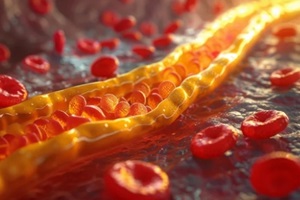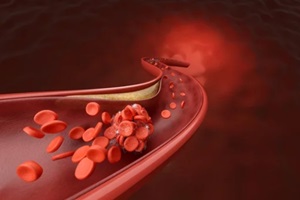 High cholesterol is a widespread health issue that affects millions. Too much cholesterol circulating in your bloodstream raises your risk of developing cardiac disease and suffering a stroke down the road. The good news is there are numerous effective strategies for getting your cholesterol under control.
High cholesterol is a widespread health issue that affects millions. Too much cholesterol circulating in your bloodstream raises your risk of developing cardiac disease and suffering a stroke down the road. The good news is there are numerous effective strategies for getting your cholesterol under control.
Read on to learn about lifestyle changes, dietary tweaks, medications, and alternative remedies to discuss with your doctor.
Lifestyle Changes
Lifestyle factors have a substantial influence on cholesterol levels. Tackling the following can help get wayward numbers back on track without immediately needing medications in some cases.
Get Active
The American Heart Association (AHA) suggests at least 150 minutes of moderate aerobic exercise per week to rev up your HDL. This could mean brisk walking, swimming laps, cycling, or any activity you enjoy that noticeably quickens your pulse.
Even shorter or easier workouts can still produce gains. In one study, less than 150 weekly minutes of gentle exercise increased HDL more than remaining completely sedentary. In short, moving your body pays dividends.
Kick Smoking
Lighting up cigarettes lowers HDL, lifts LDL and triglycerides (blood fats), and leaves heavy smokers facing triple the normal heart disease risks, with risks remaining elevated for as long as 30 years post-quitting. Quitting smoking improves cholesterol and overall cardiovascular health.
Drink in Moderation
Moderate alcohol intake is associated with increasing levels of HDL. However, overdoing it can contribute to high triglycerides, blood pressure issues, stroke, and more. The AHA cautions that no one should start drinking just for potential health perks. However, if you partake, they define moderate drinking as:
- One drink daily maximum for women
- Two drinks daily maximum for men
Lose Excess Weight
Carrying extra pounds, especially belly fat, goes hand in hand with poorer cholesterol levels. The AHA says that trimming a moderate 5% to 10% of your current weight through the lifestyle tweaks above ramps up your HDL while lowering LDL and total cholesterol substantially.
Dietary Changes
Shifting your daily menu to emphasize certain foods over others can also improve cholesterol readings without medication in some cases.
Limit Saturated and Trans Fats
Saturated fat boosts LDL and is found in fatty meats, whole milk dairy, butter, cheese, ice cream, palm oil, and coconut oil. Trans fats hide in store-bought baked goods, snacks, frozen pizza, coffee creamers, and anything with “partially hydrogenated oil” on its ingredient list.
Minimizing intake from both of these fats is imperative while upping plant proteins such as beans and lentils, fish, skinless poultry, veggies, fruits, nuts, seeds, and whole grains. These nourishing picks slash LDL.
Add Avocado
 Creamy, green avocado fruit gets its velvety texture from monounsaturated fats that help lower LDL and raise HDL. One Australian study observed that eating one avocado per day mildly improved all three cholesterol markers that the study monitored.
Creamy, green avocado fruit gets its velvety texture from monounsaturated fats that help lower LDL and raise HDL. One Australian study observed that eating one avocado per day mildly improved all three cholesterol markers that the study monitored.
Avocado’s fiber may also decrease cholesterol absorption.
Focus on Soluble Fiber
Soluble fiber soaks up LDL cholesterol like a sponge and ushers it out before your body absorbs it. Fruits, vegetables, oats, barley, beans, peas, and psyllium husk fiber supplements provide plenty of soluble fiber. Work these foods into your snacks and meals each day.
Medications That Can Help
For moderate to high-risk patients, doctors often prescribe cholesterol medications along with lifestyle therapy. You may need to try different drugs or combos to discover what’s most effective.
Statins
Statins are usually frontline meds prescribed to tackle high LDL or total cholesterol. They work by blocking an enzyme your liver needs to manufacture cholesterol. This lowers the supply so more LDL can be pulled from your bloodstream instead.
Statins powerfully lower LDL while boosting HDL by as much as 15%. They also reduce heart attack and stroke risk by 25% to 35%. Examples include atorvastatin, rosuvastatin, and simvastatin.
Other Non-Statin Drugs
Depending on your needs, doctors have additional medication classes to fine-tune cholesterol beyond statins alone:
- Cholesterol absorption inhibitors stop the intestines from soaking up cholesterol from your food.
- Bile acid sequestrants eliminate LDL cholesterol through bowel movements. They’re often combined with statins for enhanced effects.
- PCSK9 inhibitors allow liver cells to reabsorb and break down more LDL out of circulation.
- Fibrates and niacin (vitamin B3) mainly target elevated triglycerides or low HDL.
Alternative Supplements and Remedies
Before trying supplements, discuss options with your doctor to weigh appropriateness for your situation. Here are some of the most commonly used options for high cholesterol:
Psyllium Fiber
Psyllium is a soluble fiber originating from the seed husks of Plantago psyllium plants. Just five grams daily may lower total and LDL cholesterol by binding with bile acids related to cholesterol absorption.
Fish Oil
Omega-3 fatty acids found in fish oil may raise HDL concentrations. They may also assist in clearing triglycerides from your blood. Aim for daily EPA/DHA combo doses from 0.3 to no more than 4 total grams via seafood or quality supplements to avoid side effects.
CoQ10
Coenzyme Q10 sparks energy production in cells and acts as an antioxidant. Those deficient in CoQ10 tend to have poorer cholesterol breakdown. Correcting insufficiency with supplements may moderately improve all cholesterol markers.
Plant Sterols
Sterol molecules from vegetative sources may limit cholesterol uptake in the gut to lower circulating levels by 5% to 15%. The minimum effective dose is 0.8 grams daily from fortified foods or supplements.
Discuss any interest in alternative remedies with your physician first since some products, such as niacin and fish oil, carry side effect risks if taken incorrectly or by certain groups. Professional input is necessary.
Keep Your Health on Track with Imperial Center Family Medicine
 High cholesterol is a widespread yet preventable and treatable condition. Through open discussions with your doctor about all management strategies available, staying committed to daily lifestyle therapy, sensible supplementation if needed, and any prescribed medications, you can keep cholesterol under control for good.
High cholesterol is a widespread yet preventable and treatable condition. Through open discussions with your doctor about all management strategies available, staying committed to daily lifestyle therapy, sensible supplementation if needed, and any prescribed medications, you can keep cholesterol under control for good.
Contact Imperial Center Family Medicine in Durham, NC today at 919-873-4437 or via our website to learn about our comprehensive services surrounding cardiovascular wellness and preventative care. Our team’s thorough guidance helps patients make informed choices to combat high cholesterol effectively.
